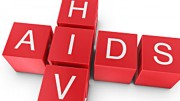 BOSTON, Mass.—A policy brief released today by the National Center for Innovation in HIV Care—a program of The Fenway Institute, AIDS United, and ARCW—examines questions that have been raised about the interaction between feminizing hormones used by transgender women, and the medication currently approved for use as pre-exposure prophylaxis for HIV prevention (PrEP). It calls on the scientific community to conduct more research on PrEP with transgender women, and urges transgender women who are HIV-negative to discuss PrEP with their doctors as a potential option for helping them stay HIV-negative.
BOSTON, Mass.—A policy brief released today by the National Center for Innovation in HIV Care—a program of The Fenway Institute, AIDS United, and ARCW—examines questions that have been raised about the interaction between feminizing hormones used by transgender women, and the medication currently approved for use as pre-exposure prophylaxis for HIV prevention (PrEP). It calls on the scientific community to conduct more research on PrEP with transgender women, and urges transgender women who are HIV-negative to discuss PrEP with their doctors as a potential option for helping them stay HIV-negative.
Transgender women are 49 times more likely to have HIV than the general population, and approximately 20 percent of transgender women worldwide are living with HIV. Black transgender women are three times more likely than White and Latina transgender women to be living with HIV. Until an analysis of two PrEP clinical trials involving transgender women was published in The Lancet in November 2015, however, there were no data indicating efficacy of PrEP among transgender women. As a result, the U.S. Centers for Disease Control has not yet issued guidance on the use of PrEP among transgender women. [pullquote]Transgender women are 49 times more likely to have HIV than the general population, and approximately 20 percent of transgender women worldwide are living with HIV. Black transgender women are three times more likely than White and Latina transgender women to be living with HIV.[/pullquote]
“Transgender women are a priority population in HIV prevention and treatment, and need to be a priority population in PrEP research,” said Sean Cahill, PhD, co-author of the issue brief and Director of Curriculum and Policy at the National Center for Innovation in HIV Care. “More research is needed to demonstrate that PrEP is effective for transgender women and to better understand any interaction between PrEP and feminizing hormones. In the meantime, PrEP is a prevention option that transgender women should consider in consultation with their medical providers.”
Transgender women have been included in some clinical trials of PrEP, but only as a small minority of participants in studies with non-transgender MSM. Low adherence to the PrEP medication among transgender study participants is likely a major factor in the lack of demonstrated efficacy. The November 2015 Lancet analysis demonstrated some efficacy among transgender women who were adherent to PrEP. [pullquote]“More research is needed to demonstrate that PrEP is effective for transgender women and to better understand any interaction between PrEP and feminizing hormones. In the meantime, PrEP is a prevention option that transgender women should consider in consultation with their medical providers.”—Sean Cahill [/pullquote]
The policy brief, “Transgender women and pre-exposure prophylaxis for HIV prevention: What we know and what we still need to know” is available here.
Since 1971, Fenway Health has been working to make life healthier for the people in our neighborhood, the LGBT community, people living with HIV/AIDS and the broader population. The Fenway Institute at Fenway Health is an interdisciplinary center for research, training, education and policy development focusing on national and international health issues. Fenway’s Sidney Borum Jr. Health Center cares for youth and young adults ages 12 to 29 who may not feel comfortable going anywhere else, including those who are LGBT or just figuring things out; homeless; struggling with substance use; or living with HIV/AIDS. In 2013, AIDS Action Committee of Massachusetts joined the Fenway Health family, allowing both organizations to improve delivery of care and services across the state and beyond.
[From a News Release]







